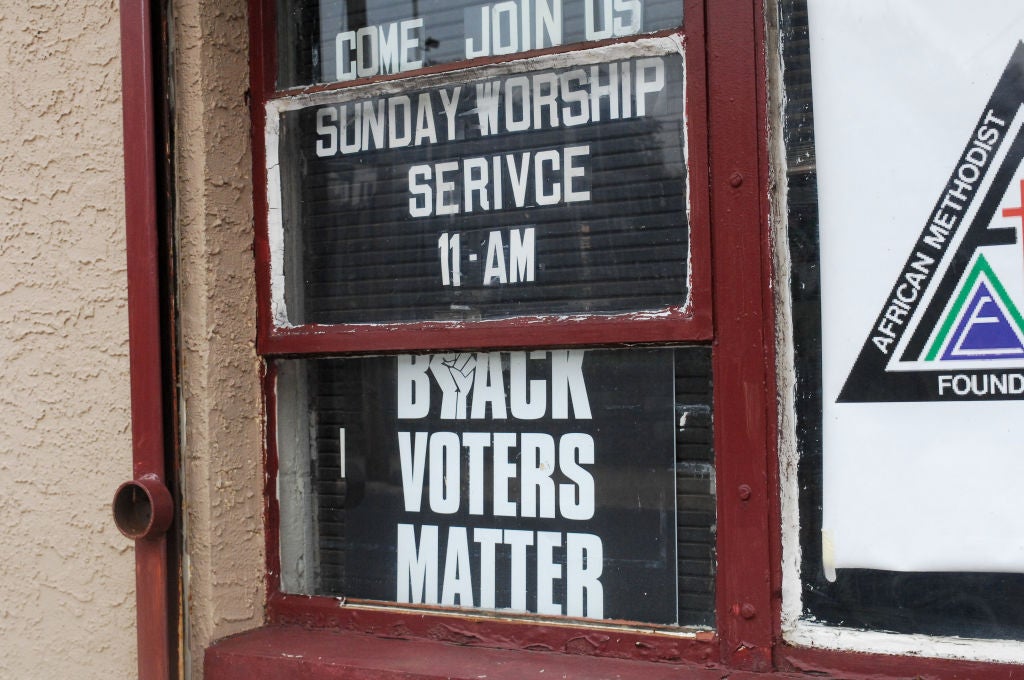Tennessee Challenged To Address Issues In Voting Rights Restoration Process
Check out the Blockbuster Trailer for ‘The Rescue’
December 6, 2020‘Power Pack #1’ Review: Is this Team Ready to Join this Generation of Young Marvel Heroes?
December 6, 2020Tennessee Challenged To Address Issues In Voting Rights Restoration Process
https://www.essence.com/news/tennessee-challenged-voting-rights-restoration/
 By Anoa Changa ·December 4, 2020December 4, 2020
By Anoa Changa ·December 4, 2020December 4, 2020
The Tennessee Conference of the NAACP and five residents are fighting to restore voting rights to formerly incarcerated folks across the state. A lawsuit filed Thursday alleges Tennessee’s process has systematically failed formerly incarcerated people and a process riddled with inconsistencies in administration.
“One in five Black people in Tennessee can’t vote because of past convictions—the second highest rate of Black disenfranchisement in the country—and one in ten Latinos, the highest rate of Latino disenfranchisement in the country,” Gloria Sweet-Love, President of the Tennessee Conference of the NAACP, said in a statement.
Sweet-Love highlighted the work done by the legislature to create opportunities for formerly incarcerated people to restore their rights. She said that state officials failed to develop a system that works for everyone.
Tennessee based advocacy organization Free Hearts represents the parties along with Campaign Legal Services, Equal Justice Under the Law, and Baker Donelson.
“We’ve seen over and over again that people who meet the eligibility criteria are regularly denied their Certificates of Restoration and our statewide officials are passive architects of this voter suppression,” Free Hearts Legal Advisor Keeda Haynes said in a statement. A former public defender, Haynes said that Free Hearts has helped thousands with felony convictions restore their rights.
According to Campaign Legal Center, whether a formerly incarcerated person can have their rights restored depends on what year the conviction happened, what type of conviction, ability to pay the legal financial obligation, and whether the sentence has been completed.
“Tens of thousands of Tennesseans are eligible for a Certificate of Restoration (COR) and, as a matter of law, have a statutory right to restore their vote upon request,” Blair Bowie, Legal Counsel & Restore Your Vote Manager at Campaign Legal Center, said. “To date, only a small fraction of those individuals have been able to receive their CORs and restore their voting rights because the process as administered by Defendants is unequal, inaccessible, opaque, and inaccurate.”
 (Photo by Cory Clark/NurPhoto via Getty Images)
(Photo by Cory Clark/NurPhoto via Getty Images)
Restoration of voting rights differs across states, with only 16 states restoring rights automatically upon release. Maine, Vermont, and Washington D.C. do not disenfranchise people who have been convicted of felonies.
The Tennessean reported in October that 3,400 individuals had their rights restored in the past four years. It is estimated over five million Americans remain unable to vote due to felony convictions.
TOPICS: Tennessee voting rights
The post Tennessee Challenged To Address Issues In Voting Rights Restoration Process appeared first on Essence.
